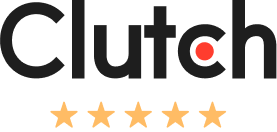Choosing the right CRM system for your healthcare business can feel like a high-stakes decision. You’re balancing essential needs – functionality, cost, and, most importantly, compliance – while trying to find a platform that won’t hinder your progress. While a solution like EspoCRM is an excellent choice for teams who want complete control and a lean budget, it’s just one option on a broad and diverse landscape. This guide extends beyond a specific project brief to provide a more comprehensive, professional look at the top alternatives, including a few other key players you should be aware of.
1. EspoCRM: Building Your Solution from the Ground Up
Many organizations find EspoCRM to be a fantastic starting point for a Minimum Viable Product (MVP). Its greatest strength is its open-source nature, which gives you a blank canvas. This is ideal for organizations that require a highly customized, tailored solution for specific needs, such as HIPAA compliance and unique workflows. Think of it as a custom-built car – you get to pick every part, from the engine to the paint job.
✅ Pros: It’s incredibly cost-effective, using minimal licensing fees and free automation tools like n8n. This means your initial investment is low. You also gain unparalleled control, which is a significant advantage for meeting strict compliance standards.
❗️ Cons: All that control comes with a catch. You’ll need a dedicated development team to build out the features and integrations you need. It’s a project that requires time and technical expertise.
2. The Top Alternatives to EspoCRM
When evaluating direct alternatives, these three strong contenders frequently arise in discussions. Here’s a closer look at what makes each one unique.
NOSH EMR: The Clinician’s Choice
NOSH EMR is an excellent option if your priority is clinical documentation and patient care, not just lead management. It’s an accurate electronic medical record (EMR) system at its core.
✅ Pros: It offers a clean, straightforward interface for tasks such as charting, managing medication lists, and tracking allergies. Its patient portal is also a significant benefit, making it easy for patients to book appointments and complete forms.
❗️ Cons: While it’s built for healthcare and uses robust security, its HIPAA compliance isn’t as explicitly guaranteed as with a commercial SaaS. It also requires significant effort to customize and may lack some of the more advanced features of a modern, enterprise-level EMR.
Zoho CRM (Enterprise Edition): The All-in-One Powerhouse
For organizations that want a fully managed, hands-off solution, Zoho CRM is a top contender. It’s like a Swiss Army knife for business – packed with features and designed to handle almost anything.
✅ Pros: Zoho’s Enterprise edition is more than just a CRM. It comes with powerful automation tools, a massive marketplace of integrations, and multi-user portals that can be a game-changer for patient and partner management. A health insurance company, for example, might utilize Zoho to automate policy applications and consolidate all client communication in one secure location.
❗️ Cons: The main benefit is the included Business Associate Agreement (BAA), which provides peace of mind regarding HIPAA compliance. The trade-off is the significant annual cost, which can make it less suitable for a low-budget MVP.
Insightly (Enterprise Edition): The Project Manager’s Dream
Insightly is unique because it seamlessly blends CRM with powerful project management capabilities. This makes it an excellent fit for practices that manage patient care as a series of well-defined steps or “projects.”
✅ Pros: The platform’s strong workflow automation and project pipelines can streamline complex processes. It’s beneficial for tasks such as managing a patient’s journey from intake to treatment or coordinating multiple services for a single case. A biotech company might use it to track a research project from start to finish, ensuring every step is documented.
❗️ Cons: While its features are robust and it offers a BAA for HIPAA compliance, the cost is a significant consideration. Its pricing is often more than a small to midsize organization’s budget warrants.
To help simplify this complex decision, the table below offers a quick comparison of four leading platforms. It highlights their primary uses, core strengths, and key drawbacks, providing a side-by-side view to assist you in selecting the right tool for your specific needs.
| Feature / Platform | EspoCRM | NOSH EMR | Zoho CRM | Insightly |
| Primary Use | Highly customizable CRM | EMR-first, clinical focus | All-in-one commercial SaaS | CRM + Project Management |
| HIPAA compliance | Yes (self-hosted control) | Unclear (open-source) | Yes (BAA available) | Yes (BAA available) |
| Core strengths | Cost, customization, control | Clinical workflows, patient portal | Robust automation, native integrations | Blended CRM/project tools, user-friendly |
| Main drawbacks | Requires significant dev effort | Lacks CRM-centric features | High ongoing costs, less control | Substantially high costs |
| Best for | Organizations on a tight budget need a tailored, compliant MVP. | Clinical practices that need a core EMR with some patient management. | Organizations seek a fully managed, all-in-one solution with a robust integration ecosystem. | Teams that manage patient care as a project and have a larger budget. |
3. More Options to Consider
The healthcare tech space is constantly evolving, and a few other platforms are worth considering.
- HubSpot: Ideal for practices seeking to prioritize patient acquisition and marketing. HubSpot’s CRM is free and user-friendly, and its marketing automation features are excellent for keeping patients engaged and informed.
- Odoo, like EspoCRM, is a powerful open-source solution. It’s a full suite of business tools, so you can start with the CRM and add other modules as you grow. It’s highly customizable and can be very cost-effective.
- Salesforce Health Cloud: This is the enterprise-grade choice for large hospital systems or healthcare networks. It’s a comprehensive, patient-centric CRM with advanced AI-driven features, but it comes with a high price tag and a steep learning curve.
Conclusion
For a healthcare organization seeking the most cost-effective, custom-built MVP, EspoCRM is an excellent choice. However, the best CRM for your organization ultimately depends on your strategic goals.
- If you value complete control and a low cost, EspoCRM is your winner.
- If you’re a clinical-focused practice and can handle some development, NOSH EMR is a great alternative.
- If you’re looking for an out-of-the-box, comprehensive solution and are willing to invest in it, Zoho CRM is a powerful contender.
- If your team thrives on project-based work and has the budget to invest, Insightly offers a unique and valuable toolset.
By carefully weighing these options, you can select a platform that not only meets today’s needs but also positions your practice for long-term success.







